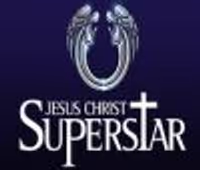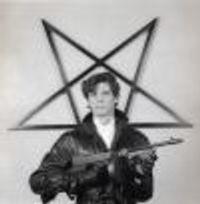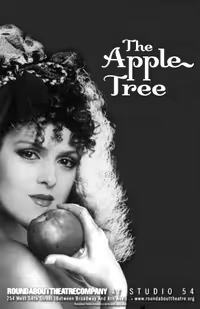LoveMusik thoughts?
#1LoveMusik thoughts?
Posted: 9/25/12 at 10:03pmI've been listening to the cast recording, and like it a lot - even with the heavy accents. I tried a search (honest), but found nothing - any of you clever people care to share your opinion? What was Harold Prince's direction like?
Jonno2
Chorus Member Joined: 9/25/12
#2LoveMusik thoughts?
Posted: 9/25/12 at 10:16pmIt sounded awful who are these actors they are so bad. I have not seen it but had the cd and threw it out
bobs3
Broadway Legend Joined: 4/8/12
#2LoveMusik thoughts?
Posted: 9/25/12 at 10:21pmI did not see it but how could any show starring Donna Murphy be awful?
#3LoveMusik thoughts?
Posted: 9/25/12 at 10:36pm
I saw it three times and while it wasn't perfect, I really enjoyed it. I thought Cerveris, Murphy and David Pittu were all at the top of their games. (Actually, I've said many times that if Christine Ebersole hadn't blown everyone else out of the water with her performance in Grey Gardens that season, Donna Murphy should've won the Tony over Audra McDonald.)
But the show definitely wasn't for everyone.
#4LoveMusik thoughts?
Posted: 9/25/12 at 10:58pmI paid attention to the reviews at time--I love Weill and anything Prince does intrigues me, and it seemed like people were overall just kinda underwhelmed. However, I don't really remember reading much about Prince's actual direction at all...
#5LoveMusik thoughts?
Posted: 9/25/12 at 11:05pmI'm wondering if the narrative was easy to follow, and how did they decide which songs to use? There are some notable omissions. Was the 80-year-old Prince still at the top of his game?
After Eight
Broadway Legend Joined: 6/5/09
#6LoveMusik thoughts?
Posted: 9/25/12 at 11:11pm
"I'm wondering if the narrative was easy to follow, and how did they decide which songs to use?"
I wouldn't say it was hard to follow. It was just rudimentary, clumsy, and inept.
" Was the 80-year-old Prince still at the top of his game?"
Not here.
#7LoveMusik thoughts?
Posted: 9/25/12 at 11:23pmPrince wasn't savaged the way he was for his next musical, London's Paradise Found directed with Stroman, but that's not saying much...
#8LoveMusik thoughts?
Posted: 9/25/12 at 11:28pm
Interesting.
Maybe this is obvious to some, but where did the title "LoveMusik" come from?
#9LoveMusik thoughts?
Posted: 9/26/12 at 2:33am
No clue about the title, but if you want a basic idea of this show and what it was like, refer to the link below.
LOVEMUSIK ABRIDGED (BUT STILL WAY TOO LONG)
Broadway Legend
joined: 5/1/05
Blocked: After Eight, suestorm, david_fick, emlodik, lovebwy, Dave28282, joevitus, BorisTomashevsky, Seb28
#10LoveMusik thoughts?
Posted: 9/26/12 at 6:54amIt irked me when the set designer incorrectly said the scene that includes "Alabama Song" is Lenya auditioning for THREEPENNY, when any Brecht/Weill enthusiast knows that it was for MAHAGONNY SONGSPIEL.
fredric47
Understudy Joined: 7/18/04
#11LoveMusik thoughts?
Posted: 9/26/12 at 7:23am
I had an unusual experience at "LoveMusik" on Mother's Day afternoon in 2007. Hal Prince came onstage before the performance to announce that Donna Murphy would be out of the show and her standby Ann Morrison would be taking her place. Hal gave Ann, his co-star from "Merrily We Roll Along" in 1981, a marvelous endorsement. While I know a lot of the Manhattan Theatre Club subscripers were rapidly exchanging their tickets for a later performance in order to see Donna, I stayed because it wasn't an option for me, being an out-of-towner. Judy Blazer was also out of the show that day, without an understudy to cover her chorus part. So there were less actors on stage than there were at a usual performance.
Hal was so right. Ann Morrison was brilliant as Lotte Lenya. Michael Cerveris, whom I missed seeing in "Assassins," for which he won the Tony Award, was so amazing as Kurt Weill. I couldn't wait until the o.c. recording came out on CD. Yet, because of Donna Murphy weird take on Lotte Lenya's German accent and singing voice, I find that it is hard for me to listen to the recording knowing that Ann Morrison was not that quirky in her vocal interpretation of the part.
#12LoveMusik thoughts?
Posted: 9/26/12 at 8:00amI enjoyed it. I knew nothing about it going in. I mean there were major flaws as far as a musical is concerned but i really enjoyed it. I loved Donna Murphy's "Surabaya Johnny". I also thought the ending was terrifically staged.
#13LoveMusik thoughts?
Posted: 9/26/12 at 11:00am
Parts of it were interesting, but it just seemed like no one involved was on the same page. Murphy was trying to imitate Lenya's young voice throughout (not her older cigarette bark), but ended up sounding like a Teutonic Minnie Mouse.
The story was told in an unimaginative linear "this happened, then this, then this" fashion. David Pittu chewed the scenery as Brecht, which the more vulgar among us thought was brilliant.
The show's biggest flaw is that every single song was either heavily truncated ("Surabaya Johnny" in only 2 verses?) or weirdly arranged.
And the show ended with Murphy making up to go on in the Off-Broadway Threepenny while the intro to "Pirate Jenny" vamped... and then she never sang "Pirate Jenny."
Just weird. I chalk it up to Hal Prince's advanced age.
chris d
Broadway Star Joined: 4/21/07
#14LoveMusik thoughts?
Posted: 9/26/12 at 11:13amoverall I liked it... probably a conceptual misfire, trying to thematically insert Weill songs into the narrative. The scenes between Murphy and Cerveris were magical, and there were some nice visuals throughout. I thought they mishandled Brecht as a a character in this. They tried to make him as cute and quaint as Weill and Lenya. Maybe if they made him colder it would have brought more good tension to the show.
#15LoveMusik thoughts?
Posted: 9/26/12 at 10:04pm
Thanks all! :)
I've progressed onto Ute Lemper now.
#16LoveMusik thoughts?
Posted: 9/26/12 at 10:29pmI actually liked it a lot. The actual construction of the show wasn't great, it wasn't particularly well written, but both of the lead performances were fantastic. And I'm into the subject anyway, so that didn't hurt.
#17LoveMusik thoughts?
Posted: 9/27/12 at 11:01am
I passed for fear it would be a downer of a disappointment. I may be wrong, but it struck me from the reviews as being a run of the mill show biz bio in all but the score, which surprised me because their life was very interesting and unusual. I highly recommend Donald Spoto's bio Lenya btw.
LoveMusik simply means Love Music, or Love Song, of course, and I assume it seemed an apt title for a musical about the very modern love affair between a great composer and singer who married each other. Twice!
#18LoveMusik thoughts?
Posted: 9/27/12 at 11:16am
Of course the title and marketing of the show were inappropriately sentimental, considering the unusual and sophisticated nature of their relationship, which was as far from "sentimental" as possible. They both enjoyed multiple affairs, and Weill famously told Lenya (as a compliment), "you know you always come second, right after my music."
After Weill's death, Lenya married a gay man, whose company she enjoyed very much, and whom she knew would be a good companion and would take care of her. Another view of relationships that most people today wouldn't quite get.
Modern Americans don't, as a rule, understand the view of "love" from other times and places, and this show was a symptom of that lack of understanding.
Videos









